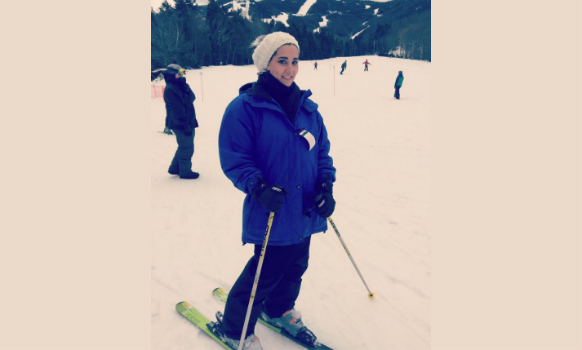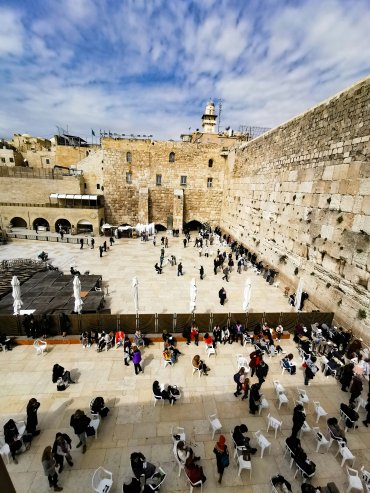How Can I, As An Orthodox Woman, Feel More Included On Simchas Torah?
Dear Rebbetzin Chaya-
I didn’t grow up religious, so I left a world of egalitarian Judaism. And I’m happy with that decision. Then again, on Simchas Torah it seems like there’s nothing for women to do. How do I come to terms with the fact that I don’t want to do hakafos but also feel left out?
Sincerely,
Rebecca
Dear Rebecca,
This is a question that is hard to answer without knowing where you have landed in the world of Orthodox Judaism, and why. There is a very very broad spectrum of women’s observance of Simchas Torah within Orthodox communities. There are Orthodox communities where women have Torahs to hold and dance with, and do so enthusiastically and passionately. There are Orthodox communities where there is a Torah placed on the women’s side but not held, and women dance around it. There are some communities where women dance enthusiastically with no physical Torah, and yes, plenty, many, where the women are solely spectators.
When it comes to Judaism there is Torah and Halacha, and there is what I sometimes call architecture. Halacha says we should have a mechitza in a place of communal prayer.
It even dictates the height of the mechitza (although there is, of course, a variation of opinions about that). But a shul with a mechitza that is oppressive to women, a women’s section where women cannot see or hear or do not feel welcome–well, that’s not Halacha, that is architecture.
This is not, for the most part, a matter of technical Halacha. This, at least in many communities, is a matter of architecture. There can be room within Halacha for women to dance to celebrate the Torah, and in many communities the lack of enthusiasm that you encounter among women is a matter simply of “architecture”, not halachik opposition. That being said, there are many communities where there is a halacha-based discomfort with women’s participation, and the answers that follow should be adjusted depending on what community you are in.
That being said, you have a few options in front of you. Depending on the community, you could, in consultation with the Rabbi or Rebbetzin, attempt to organize some sort of enhancement of women’s participation in a way that is appropriate for your community (a mechitza, a separate room, organizing like-minded women to be there and enthusiastic etc.). I would suggest approaching such a thing gently and sensitively, because there are often lots of sensitivities being juggled within a community. You say you do not “want to do hakafos,” but do not want to feel left out. If being a spectator does not appeal to you, then there is no requirement to be at Hakafos. Can you plan an alternate activity for women to celebrate the completion of the Torah? Perhaps a shiur? Or a kumsitz? Or plan an activity for yourself that you find fulfilling and appropriate for the evening.
One last thought. You chose your community and your way of life, to be committed to Hashem, and His Torah, and the Halachic system that guides us in how to serve Him. It is OK to feel uncomfortable with a piece of this package. It doesn’t have to always feel good. Not to act out against Torah or denigrate it, but to acknowledge–”I don’t understand this”, or “This is hard for me.” We keep learning, and looking for the meaning, and working on ourselves, and working on the “architecture” when necessary, but sometimes we do have to subjugate our own desires to those of Halacha. And like any relationship, sometimes we can love a community enough to be a part of it even if there are some aspects of its architecture that annoy us.
Sincerely,
Rebbetzin Chaya
If you found this content meaningful and want to help further our mission through our Keter, Makom, and Tikun branches, please consider becoming a Change Maker today.







1 comment
Sort by
Wow that is so well put and beautifully written!